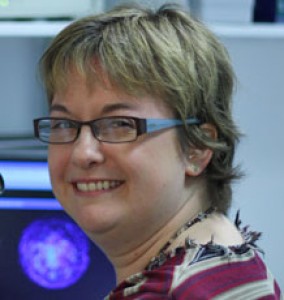Dr Helen Dawe

Senior Lecturer in Cell Biology
University of Exeter
 United Kingdom
United Kingdom+44 (0)1392 723431
h.r.dawe@exeter.ac.uk
biosciences.exeter.ac.uk/staff/index.php?web_id=helen_dawe&tab=research
Research Interests
Eukaryotic cilia and flagella are remarkably conserved, both at the structural and functional levels, from evolutionarily ancient unicellular eukaryotes to man and are adapted to carry out diverse roles. Almost every cell in the human body can form a cilium or flagellum, either motile or non-motile. Motile cilia move fluids past epithelial cell layers in multicellular organisms; however, non-motile primary cilia are the most common type of cilia in the body. The roles of primary cilia were unclear but the recent identification of many inherited disorders involving aberrant ciliary function, termed “ciliopathies”, has changed this and primary cilia are now known as sensory organelles, acting both as chemo- or mechanosensors and transducers of signals that regulate key developmental signalling pathways. My lab focuses on the severe ciliopathy Meckel Gruber syndrome. We use a combination of patient-derived cell lines, post-genomic technologies, classical cell biology and genetics to give insight into the molecular cell biology of the disease. We are currently studying the roles that two proteins, TMEM67 and TMEM216, play in organisation of the actin and microtubule cytoskeletons during cell migration.
